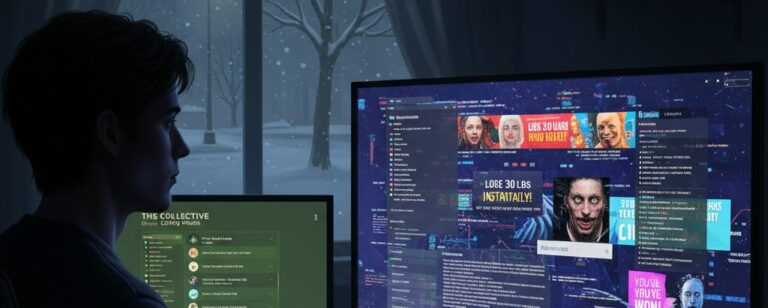Shortly after the election I decided it was time to cut back on my screentime and do some digital detoxing. In the lead up to election day I had been glued to my devices watching for the latest breaking news, poll results, or policy announcement that could change the course of the campaign. I was experiencing what many call FOMO, or Fear of Missing Out. I’m sure many of you experienced this at some point or another too, but after the victory was secured I decided that I needed to hit the reset button and take a break from the screens for a while.
I deleted all of the major apps from my phone including YouTube, X, etc. Effectively my smartphone became a phone again and when that happened it turns out I didn’t need to spend very much time on it at all. I resolved to only check Gab on my phone a few times a day to catch up on the news and only check other sites while I was working during a fixed timeframe on my desktop or tablet.
My screentime dropped by over 80% in the first week. I noticed that I was thinking more clearly, felt less stressed, and when I sat down to do work I was more productive in less time. With the clarity that this time away has brought I was able to objectively view the content being recommended to me on the mainstream tech platforms as nothing more than time sucking digital slop.
The one exception to this is my experience on Gab. Gab doesn’t have a feed system that aims to keep your eyes glued to the screen for as long as possible. We have a very basic recommendation system and an otherwise chronological feed of content from the people and groups you follow.
Because the majority of Gab’s funding comes from the direct support of our community members through GabPRO subscriptions, donations, and merchandise on the Gab Shop we have no reason for you to be spending hours on Gab scrolling the feed. Yes, we have businesses who advertise on Gab and we are very thankful for them, but that’s not our core business model unlike every other mainstream platform.
We want Gab to provide you with valuable news and information that you can’t find anywhere else, but we have no desire for you to be spending your entire day watching goofy viral videos to pass the time. You’re free to do this on Gab, of course, but I may be the only social media CEO to encourage you not to.
Research shows that excessive information consumption can lead to psychological stress, anxiety, and mental fatigue. This constant bombardment of information through various digital channels can overwhelm our cognitive capacities, making it difficult to process and evaluate the information effectively. The inability to filter and process the overwhelming amount of data can result in difficulty making decisions, decreased productivity, and a general sense of being overwhelmed.
Our minds were not made to consume the amount of information that modern man consumes on a daily basis. We’ve reached a point of information and entertainment overload that is, to be honest, frying our brains. Our brains have been hijacked and distracted from the things that truly matter in life. The internet and social media have given rise to a new form of content – viral digital slop. This term refers to the mindless, low-quality content that goes viral for no particular reason other than its shareability. From clickbait articles to pointless memes, viral slop is designed to capture our attention and keep us engaged, even if the content is ultimately meaningless.
In addition to the viral slop, we are also consuming an excessive amount of entertainment. From streaming services to video games, we have more ways than ever to distract ourselves from the realities of life. While entertainment can provide a much-needed break, excessive consumption can lead to a lack of focus on the things that truly matter, such as our relationships, personal growth, and spiritual well-being.
Now that the election is over and we are in a period of waiting for the Trump administration to take power, I highly encourage you all to take these next two months to detox and spend time doing something you love. Whether that’s spending more time with family, getting a new hobby, writing a book, reading, or even something simple like organizing and decluttering your house. I think that like me, you’ll find that this time fosters a new sense of appreciation and preference for reality over the digital slop factory of the mainstream internet. We have a lot of work ahead of us the next four years and we need to be refreshed and focused going into 2025 when we get started.
So as we head into the most joyful time of the year be sure to take time to experience the benefits of JOMO. The Joy of Missing Out (JOMO) is a mindset that encourages us to step back from the incessant consumption of news and information, and instead focus on the things that truly matter in our lives. By choosing to miss out on the constant noise and distractions, we open ourselves up to a world of possibilities and experiences that can bring us greater joy, contentment, and growth.
Andrew Torba
CEO, Gab.com
Christ is King





